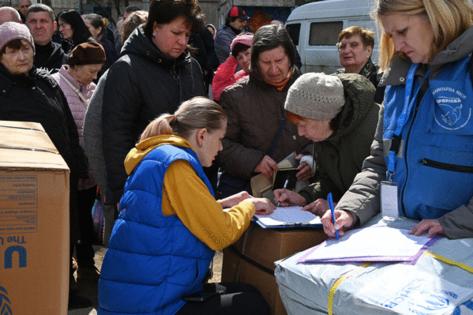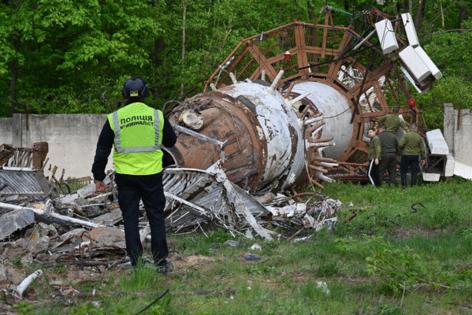Pummeled by airstrikes, Ukrainians in Kharkiv defy Russia by getting on with daily life
Published in News & Features
KHARKIV, Ukraine — It made for an unlovely municipal symbol, soaring but hardly graceful: the 800-foot-tall Soviet-era television tower that was for decades a familiar signature in the skyline of Ukraine's second-largest city, Kharkiv.
Ungainly though the tower may have been, the sight of its red-and-white upper mast plunging spearlike to the ground after a strike Monday by a Russian Kh-59 missile was a stinging affront to many in this city of 1.2 million people, only 25 miles from the Russian frontier.
"It's as if they want us to know they are right there across the border, that they can try to hurt us at any time of the day or night," said Andrii Tsarenko, a 23-year-old student who does volunteer relief work at his Kharkiv church. "But we can also show them that we can stand up, no matter what they do."
With Russian strikes often coming from so close by that they carry only seconds' warning — air alarms sounding even as missiles are slamming home — that task is more difficult by the day.
Kharkiv, a vibrant academic, cultural and industrial center before the February 2022 Russian invasion, is now Ukraine's most vulnerable major metropolis. Badly battered at the start of the fighting, when the front lines skirted outlying districts, the city in northeastern Ukraine has in recent weeks come under the worst bombardment since those early days of war.
Using a mix of weaponry, including crude but lethal "glide bombs" that allow the destruction of urban targets from a safe distance, Russia has aimed punishing daily strikes at the city's residential neighborhoods and crucial infrastructure.
An attack last month knocked out all of Kharkiv's power-generating capacity, but electricity is flowing from elsewhere in Ukraine — enough, with careful rationing, to keep the city functioning, municipal authorities said.
"They want to terrorize us," said the city's mayor, Ihor Terekhov. "We will not allow this to happen."
The wrecked tower probably couldn't be repaired until after the war, Terekhov said. But by week's end, engineers using terrestrial receivers had managed to restore a digital TV signal in Kharkiv.
::
...continued
©2024 Los Angeles Times. Visit at latimes.com. Distributed by Tribune Content Agency, LLC.










Comments